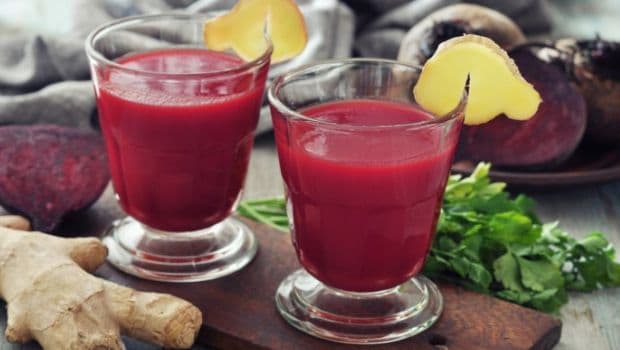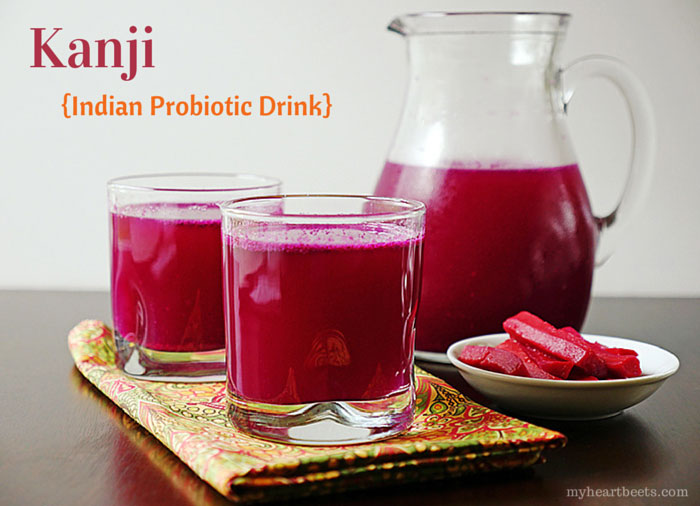About Kanji Drink
Kanji drink is a salty, sour, probiotic traditional fermented Punjabi Drink. It is also known as “Indian Kombucha”. It has a certain acquired taste, true ferment enthusiasts will appreciate the unique flavor. Kanji is a popular North Indian Drink.
It is the result of naturally occurring bacteria and yeast. It is zingy, tart, salty and when made well, pungent. It is also known as the “drink of life”. But regardless of whether you believe in its health benefits or not, Kanji is one of those interesting fermented foods that we should all get into our guts from time to time, if not for their probiotic action then for the complexity of taste.
Making of Kanji Drink
Kanji making is the work of ‘Andaz’. No measures can be given on how much water must submerge the carrots, including those beautiful purple ones, ‘kali gajar’ that comes only during winters, and imparts a rich reddish hue to the drink, is never strictly measured.
Neither is the number of mustard seeds that give the kick to the drink and kick-start the pickling process. Kanji making is the result of naturally occurring bacteria in the air and yeast found in the vegetable skin, which is why it may be best not to scrape off the carrots.
These work on the natural sugars in the carrots, which get pickled in turn, and can be inventively used in sandwiches, salads, and what-not should you not want to eat them with the kanji itself.

Food history, however, has fascinating trivia that can allow us to draw our own conclusions. In ancient India, as documented in texts like the Kashyapa Samhita, “kanjika” is described as sour, fermented rice gruel, popular in the south. “Kanjika”, it would appear, then connoted a class of fermented foods. The north India kanji could stem from that.
So could all the different versions of congee—even when the porridge is no longer sour or fermented! Why is kanji called kanji, a word that may also remind you of the Colonial congee? Congee, termed as such by the British, is a very different class of foods, more a porridge or gruel, pervasive throughout Asia, including in parts of southern India. Mostly a breakfast dish, or food for invalids, congee can be served with a variety of condiments too.
This drink is traditionally used to help aid digestion. It has a cure for everything from cancer to premature greying. Kanji is also the miracle winter drink one should have for a healthy gut.
Recipe of Kanji Drink:
Kanji is made using black (dark purple) carrots. If these carrots are unavailable, they can be substituted with beetroot to help darken the colour of the drink. This recipe uses both carrots and beets.
In addition to these two vegetables, one also need black/brown mustard seeds, fine sea salt, and filtered water. These simple ingredients make for a unique and complex flavor. Once combined with all the ingredients together for this drink, put it in a glass container and keep it in a sunny spot inside the house.
The amount of time required to create a ferment will depend on the temperature in your home, but this typically takes anywhere from 3 days to 1 week. If it’s colder, it’ll likely take an extra few days. Taste the drink periodically to see if it’s done. Once it’s nice and sour, strain it and put it in the fridge to chill.
The popular north Indian winter drink that used to be made in huge barns, or jars, as an annual ritual till a few decades ago but is now losing out in pop appeal.



